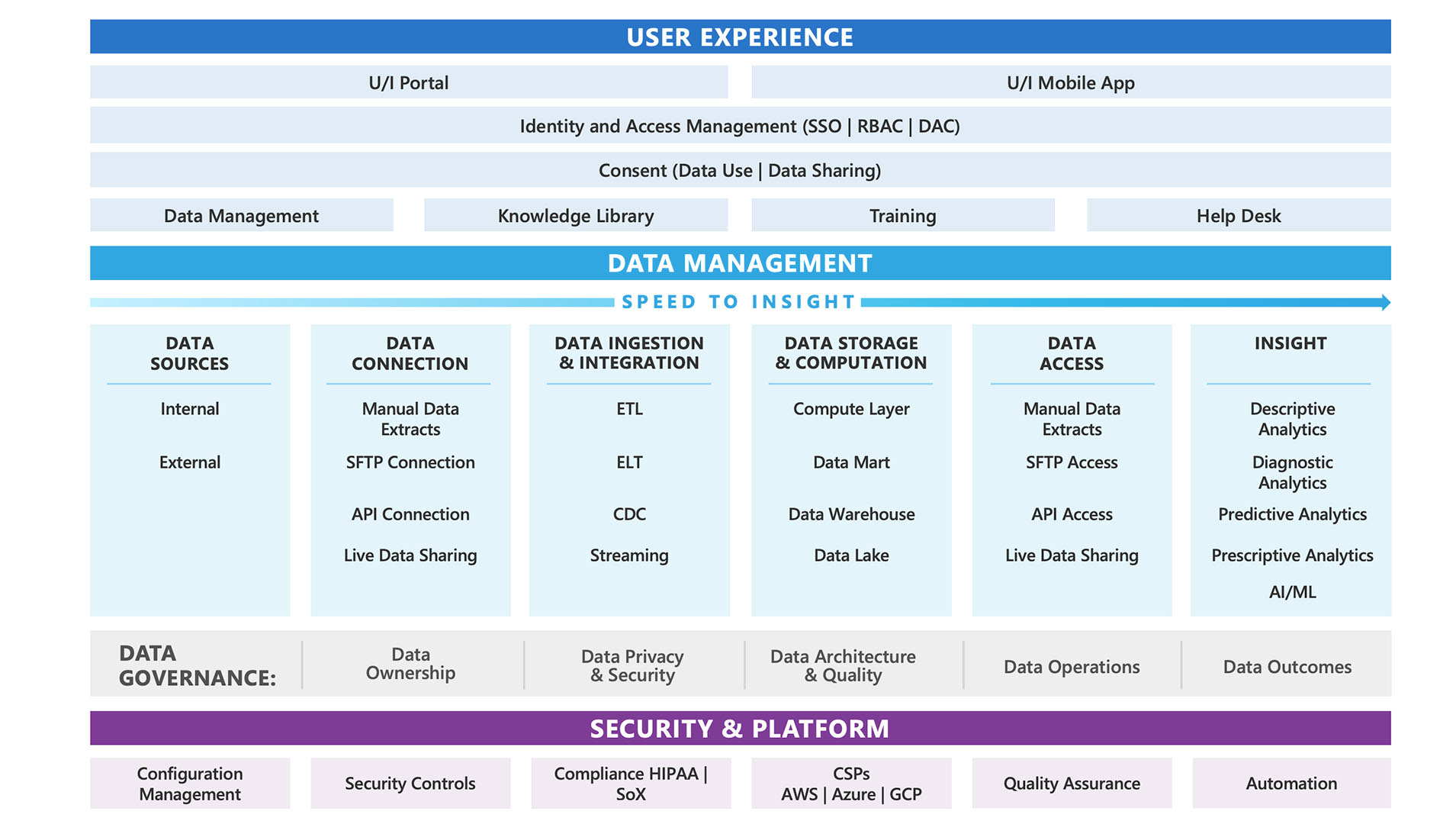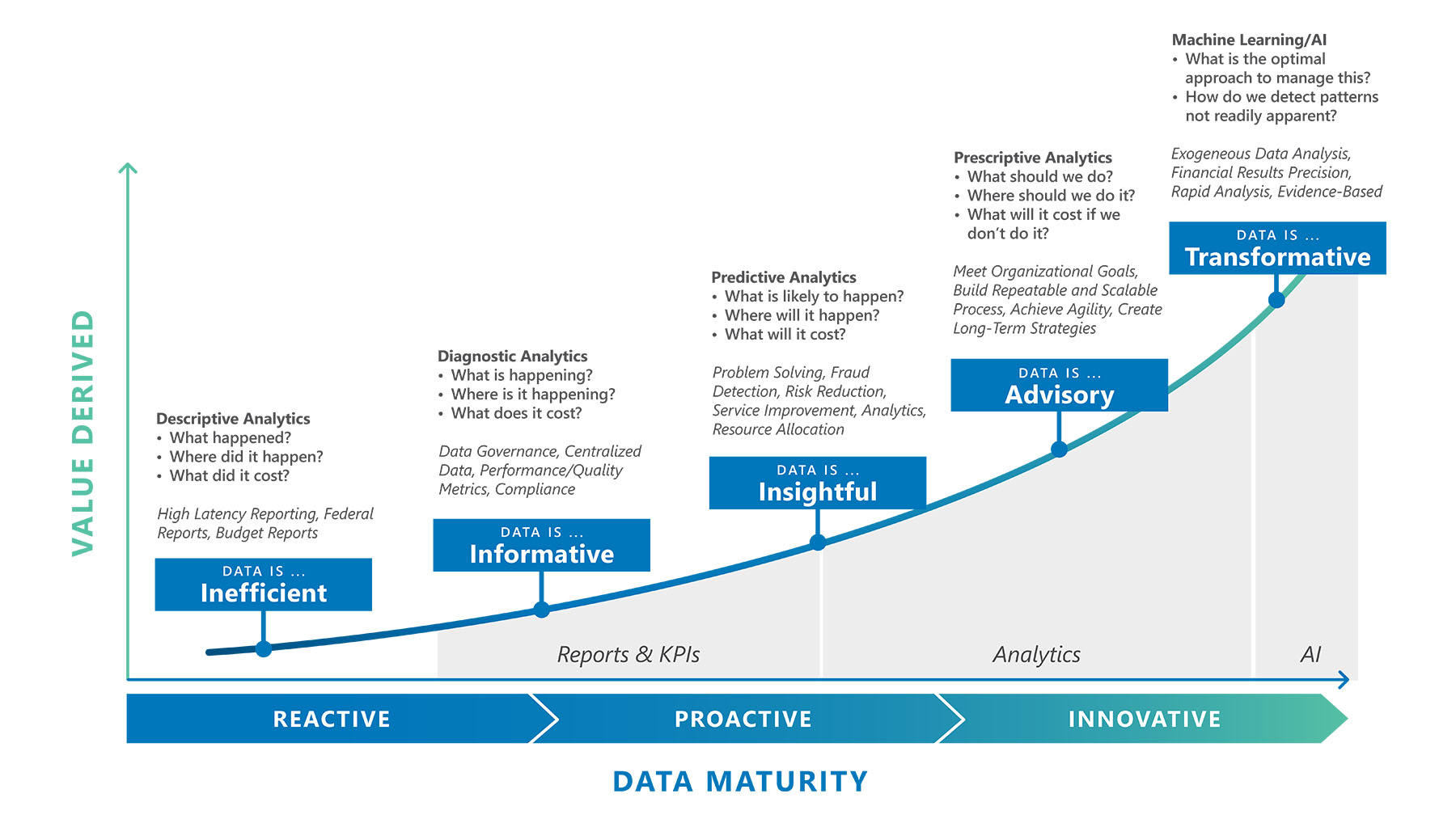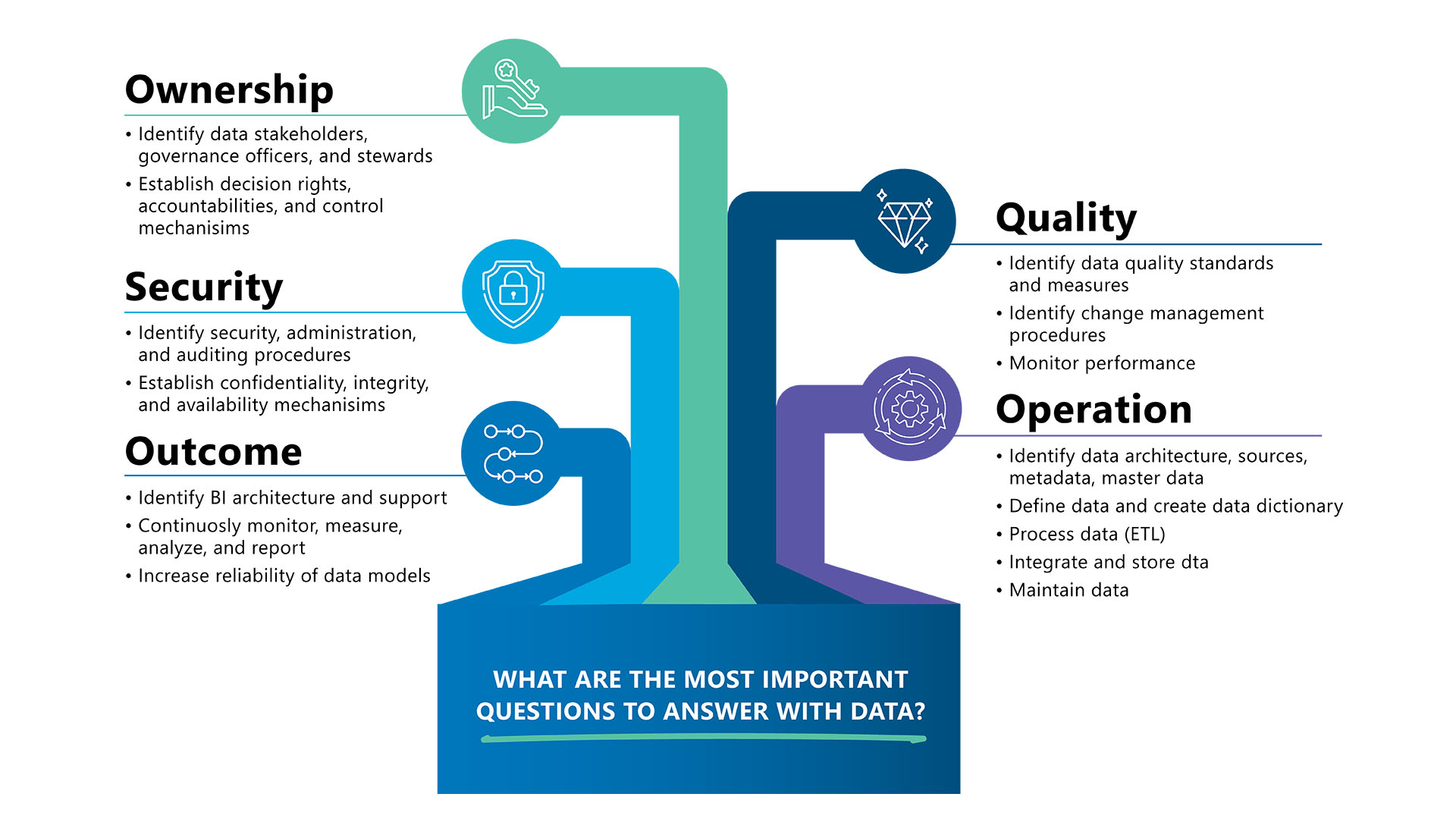Exceptional data management enables accurate, timely, high-quality insights.

Talk to our team about our Data Ecosystem Framework approach to Medicaid Enterprise Data Warehouses.
Do any of these issues sound familiar?
Data Integration and Quality
Integrating data from disparate sources often results in inconsistent, poor-quality data, leading to unreliable analytics. Streamline integration and ensure accuracy by implementing robust data acquisition processes, enforcing data quality checks, and establishing strong governance policies.
Scalability and Performance
A data warehouse that isn’t designed to maintain performance while handling an ever-increasing volume of data can cause slow queries and system bottlenecks. Scalable architectures, cloud-based solutions, indexing, and partitioning strategies help optimize performance.
Cost and Resource Management
Uncontrolled expenses related to data warehouse infrastructure, tools, and skilled personnel can strain budgets and reduce effectiveness. Cost optimization strategies, close monitoring of resource usage, and hybrid agile implementation can help balance requirements with budget constraints.
Transform exponentially growing datasets into strategic assets that drive improvements in care delivery.
-
Streamlines Approach
By optimizing the operations and number of technology platforms, Resultant simplifies analytics execution. Our vendor-neutral approach allows us to collaborate with our clients, using industry leading technology across the Ecosystem, ensuring the best fit for each customer's needs.
-
Supports Data Quality
By simplifying the integration of high-quality data in a centralized location, customers can establish a reliable, single source of truth for organization-wide reporting and analysis.
-
Increases Interoperability
The Data Ecosystem supports FHIR connectivity and integrates structured, semi-structured, and unstructured data.
-
Promotes Reusability
Resultant’s value lies in our ability to build solutions that leverage tools already familiar to business users, reducing the learning curve associated with adopting new data technologies.
-
Increases Analytics Maturity
Make progress on your data maturity path from basic descriptive analytics all the way through to advanced analytics with transformative machine learning and AI.


Wherever you are in your Medicaid data journey, we can help
Data Source Identification
Data Ingestion and Integration
Cloud Strategy
Data Access
Data Governance
Analytics and AI
FAQS
Medicaid Data Ecosystem Framework can include new or enhance existing capabilities like:
Connect
Insights delivered to your inbox


